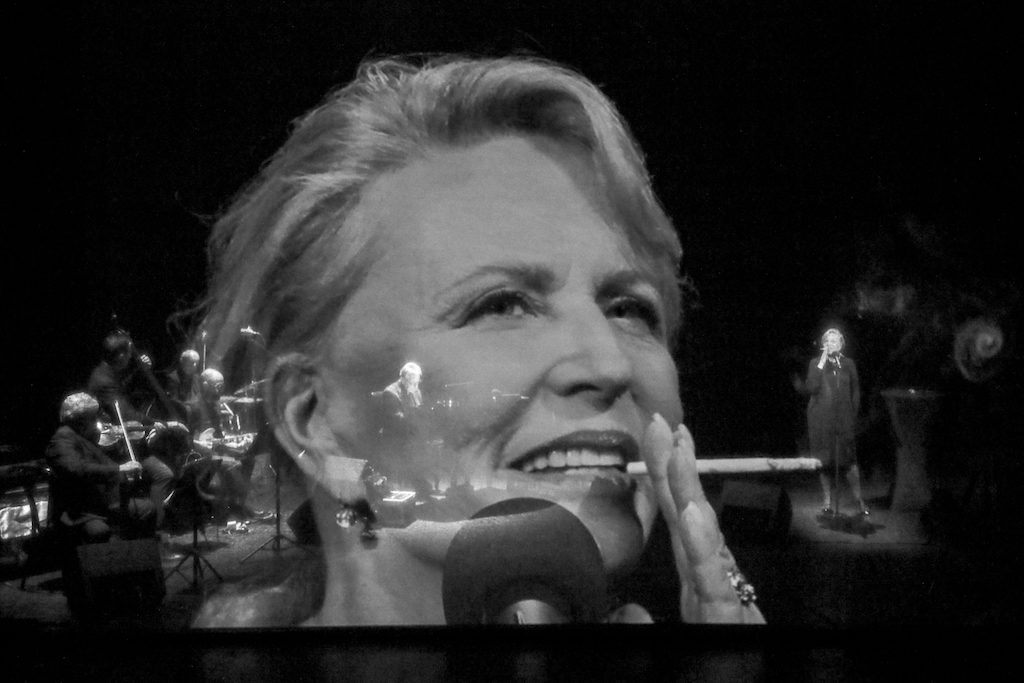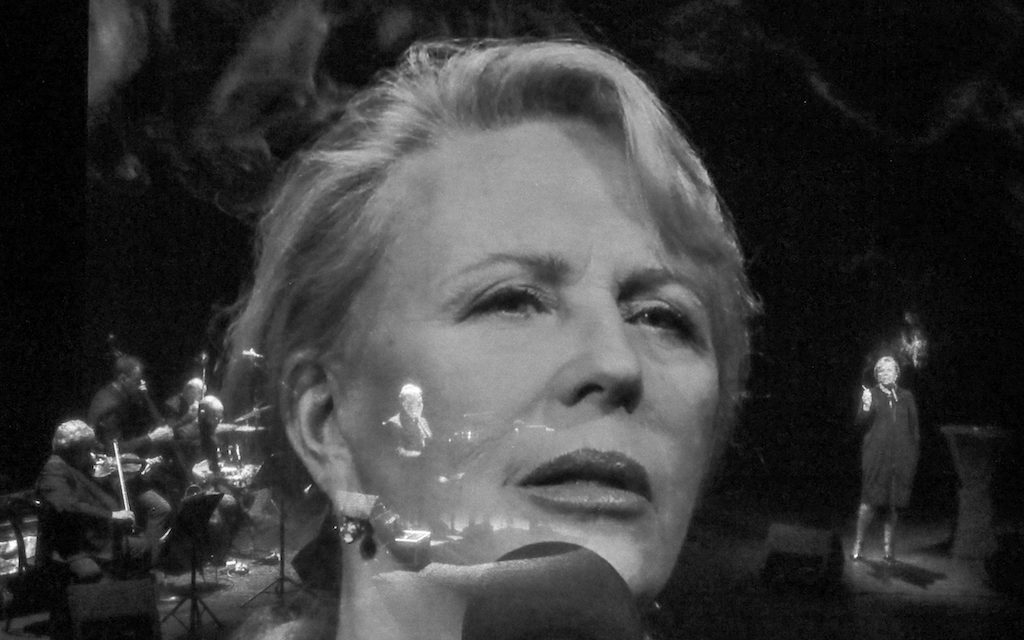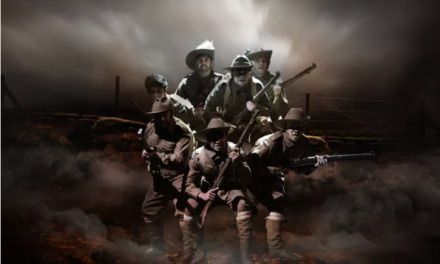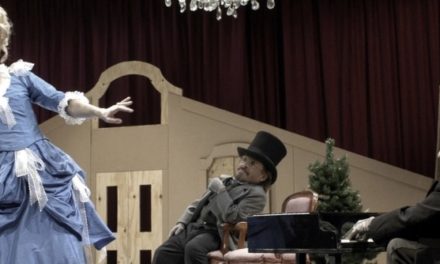Now in its 11th season, the Boska Komedia Festival is simultaneously a showcase for the most discussed Polish productions of the year, a platform for experimental and progressive work, and an opportunity for emerging voices to present their plays. This review is just one of many in The Theatre Times covering the 2018 Boska Komedia Festival. To read more reviews from the festival, click here.
Zapiski z wygnania [Notes From Exile], based on an autobiography by Sabina Baral, staring Krystyna Janda, directed by Magda Umer, and adapted for the stage by actress and director, was the final show presented at the 11th annual Boska Komedia Festival. And what a final play with which to end the week. Presented at the almost 240-year-old Stary Theater, Notes From Exile offers a stark contrast with the rest of the Festival plays this year. The play is quite short at 100 minutes and other than a band led by Janusz Bogacki, Krystyna Janda, one of Poland’s most celebrated and revered actresses, is the only performer on stage. The structure is simple: Janda speaks directly to the audience performing as real-life author Sabina Baral, telling Baral’s true story of her forced emigration from Poland as a young 20-year-old Jewish woman in 1968.
This simplicity distills the piece into a 100-minute journey of beauty and pain. Both the play itself and Krystyna Janda won top honors for Best Play and Best Actress respectively.

Notes from Exile directed by Magda Umer. Presented at Narodowy Stary Teatr—Duża Scena for the 2018 Boska Komedia Festival. Produced by Teatr Polonia. Photo Credit: Katarzyna Kural-Sadowska
Krystyna Janda, known for her leading roles in films by Andrzej Wajda as well as her work in the film Przesłuchanie [Interrogation] for which she won the Best Actress Award at the 1990 Cannes Film Festival, is stunning in her role as Sabina Baral. She begins thoughtfully, considering what it means to be simultaneously Polish and Jewish, and just who gets to decide one’s identity. Considerations such as these are sprinkled throughout the piece, but the bulk of the play is the recounting of Baral’s forced exile from Poland, traveling through Western Europe, and finally landing in America. Janda is particularly commanding when describing the theft of her childhood journal by the Polish government at an immigration checkpoint, thus losing her childhood thoughts and musings, as well as written words of encouragement from various artists she met such as from Marlene Dietrich. Equally gripping were her tales of other Jewish emigres she met. A couple attempting to bring their pet cat and the fear that it would be taken from them at checkpoint. Elderly parents carrying a small coffin of their deceased child, hoping to bury the remains in wherever their new home may be.
I was utterly enthralled by Baral’s story. The true to life journey gave weight to her statements regarding the current day. Janda/Baral regularly returns to the idea that ultimately antisemitism is the problem of antisemites. Depending on the context of the story, this statement ranges from uplifting to frightening.
There is a clear call to arms at the end of the play, in which Janda as Baral begs the audience to tell this story to others. This includes the true story of the unveiling of a recently renovated Jewish cemetery in Poland. Upon the re-opening to the public, the community discovered the cemetery was vandalized with swastikas. I attempted to look up this incident online, and in doing so I discovered news articles about another Jewish cemetery in Częstochowa, Poland that was covered in graffiti the very night I saw Notes From Exile.
At varying times, Janda pauses her story to sing old Polish and Jewish songs with Bogacki’s band. Janda sometimes sings when the story becomes too painful, both dissociating and enhancing the tragedy. Sometimes the songs act as a Brecht/Weill commentary. All of the time Janda is powerful with her raspy, beautiful, and raw voice.
Janda and Bogacki’s band are dimly lit behind a transparent partition. You can see Janda, but only just, like a shadow in fog. However, Janda’s face is blown up as a live projection on the partition in extreme closeup. You are able to see every nuance on her face, every tear, every forced smile.
Occasionally, videos of political interviews regarding Polish antisemitism or immigration are shown on screen, serving as a constant tether to the current day. One of these videos was a short interview with Sabrina Baral.
Admittedly, it was not until this interview with the author in which I realized that Krystyna Janda’s story wasn’t her own. Janda was just that convincing and that affected in her role. Even now, as I write this review, I am struggling to separate Janda from her character as Baral.
The play ends with a video of the last year’s Far-Right march in Warsaw without commentary. This video was not pejoratively obvious or too on the nose. It was utterly and truly terrifying.
Notes from Exile is what plays should be like. It was emotionally charged and gripping. Many audience members left in tears: devastated. In the tradition of Brecht, it was also a sociopolitical call for action. Through the songs and the contemporary films, the audience was constantly reminded of real pain and real hate outside of the old theater walls. Notes From Exile and Krystyna Janda’s performance were simply phenomenal.
This special report from the 2018 Divine Comedy Festival in Poland was sponsored by the Adam Mickiewicz Institute and Emerson College. To read more reviews from the festival, click here.
This post was written by the author in their personal capacity.The opinions expressed in this article are the author’s own and do not reflect the view of The Theatre Times, their staff or collaborators.
This post was written by Rem Myers.
The views expressed here belong to the author and do not necessarily reflect our views and opinions.


















